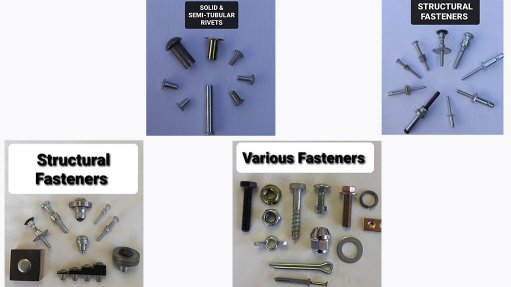‘Unconscionable’ to return allocated money instead of fixing potholes – Creecy
Transport Minister Barbara Creecy says “immediate attention” will be given to the “critical issue” of the underspending of funding allocated to road maintenance and road construction by both Department of Transport (DoT) entities and provincial transport departments.
“In a country where citizens must daily navigate the hazards of potholes, it is unconscionable that we are returning money to National Treasury.”
Tabling the Budget Vote for her department earlier this month, the newly appointed Minister noted that her first task was to stabilise the country’s transport system – “given the current status of the transport sector” – and to ensure that the DoT was “fit to fulfil its policymaking and regulatory role”.
“In recent times, there has been a disconnect between this vision and the realities of our transport system and our national Transport Department.
“Our sector is not operating as either an effective economic facilitator, or as a much-needed social service,” noted Creecy.
In summarising the woes facing South Africa’s creaking transport system, she said the 2020 National Household Travel Survey found that the declining availability of rail services meant many households were forced to rely on more expensive modes of transport.
“In the aftermath of the Covid-19 pandemic, the freight system was characterised by long delays in the movement of key bulk minerals, containers and vehicles,” she added.
“Dysfunctional port terminals resulted in long waiting times for ships wishing to berth, as well as congestion at strategic border crossings and key national highway corridors.
Our freight rail system was characterised by maintenance backlogs, cable theft and skills shortages.
Our road systems deteriorated throughout the country and many provinces failed to execute maintenance and new build programmes, resulting in unspent funds being returned to National Treasury.”
While applauding the much-needed work of the National Logistics Crisis Committee (NLCC) “as a coordinated, integrated response to meet the scale of the crisis”, Creecy added that a key priority for the next financial year would be the stabilisation and improved governance of the DoT and its entities.
“With regard to the department, critical vacancies will be assessed and appointments made to fill important posts.”
Rail Policy ‘Planning Component’
Creecy also noted that the Rail Policy, approved by Cabinet last year, “must be implemented with speed so that the country’s railway sector could be revitalised”.
“Commuter rail must become the backbone of the transport system. We must harness the potential of our freight rail infrastructure to foster long-term, sustainable economic growth.”
Creecy said a “planning component” would be established to consider the strategic value of branch lines and to unlock State and private investment in lines which had “economic potential and logistics capacity”.
“The planning component will assist in furthering the expansion and regional integration of our rail network and ensure gradual compliance with standards such as the African Union resolution on standard gauge.”
In December last year, under the auspices of the Freight Logistics Roadmap, government approved the development of a framework for private-sector participation (PSP), added Creecy.
“This framework will identify suitable areas for PSP in rail and ports and outline structural and contractual requirements to enable such participation.
The future PSP unit will be established with the necessary skills and expertise in the design, negotiation and contracting of projects so that innovative practices can assist us to solve current and future logistics challenges.”
Article Enquiry
Email Article
Save Article
Feedback
To advertise email advertising@creamermedia.co.za or click here
Press Office
Announcements
What's On
Subscribe to improve your user experience...
Option 1 (equivalent of R125 a month):
Receive a weekly copy of Creamer Media's Engineering News & Mining Weekly magazine
(print copy for those in South Africa and e-magazine for those outside of South Africa)
Receive daily email newsletters
Access to full search results
Access archive of magazine back copies
Access to Projects in Progress
Access to ONE Research Report of your choice in PDF format
Option 2 (equivalent of R375 a month):
All benefits from Option 1
PLUS
Access to Creamer Media's Research Channel Africa for ALL Research Reports, in PDF format, on various industrial and mining sectors
including Electricity; Water; Energy Transition; Hydrogen; Roads, Rail and Ports; Coal; Gold; Platinum; Battery Metals; etc.
Already a subscriber?
Forgotten your password?
Receive weekly copy of Creamer Media's Engineering News & Mining Weekly magazine (print copy for those in South Africa and e-magazine for those outside of South Africa)
➕
Recieve daily email newsletters
➕
Access to full search results
➕
Access archive of magazine back copies
➕
Access to Projects in Progress
➕
Access to ONE Research Report of your choice in PDF format
RESEARCH CHANNEL AFRICA
R4500 (equivalent of R375 a month)
SUBSCRIBEAll benefits from Option 1
➕
Access to Creamer Media's Research Channel Africa for ALL Research Reports on various industrial and mining sectors, in PDF format, including on:
Electricity
➕
Water
➕
Energy Transition
➕
Hydrogen
➕
Roads, Rail and Ports
➕
Coal
➕
Gold
➕
Platinum
➕
Battery Metals
➕
etc.
Receive all benefits from Option 1 or Option 2 delivered to numerous people at your company
➕
Multiple User names and Passwords for simultaneous log-ins
➕
Intranet integration access to all in your organisation

















